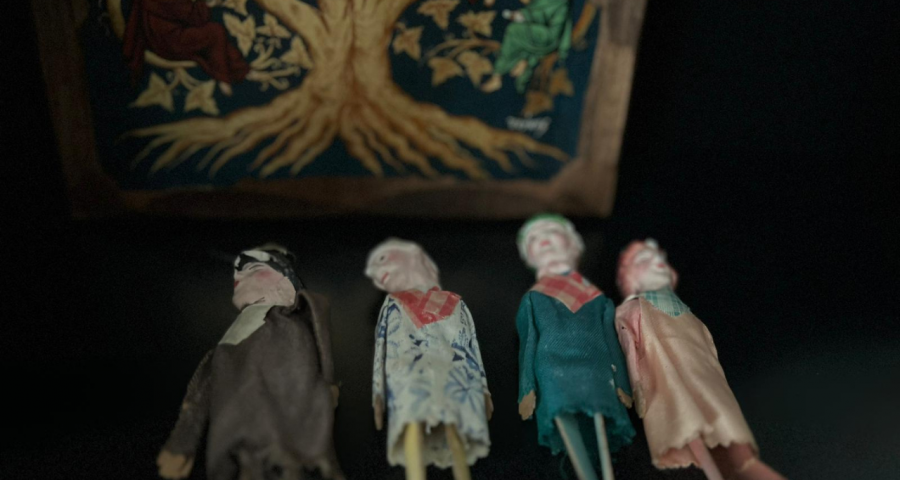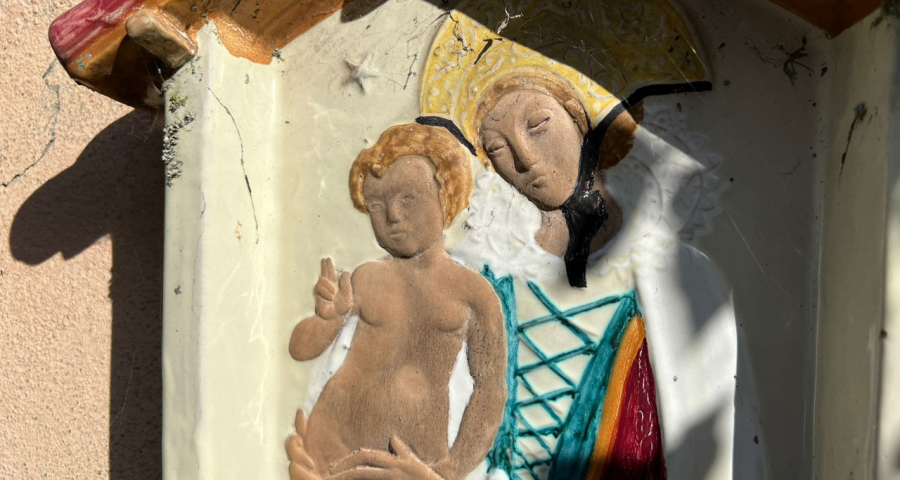CounterEconomy/4 - Biodiversity is also a fundamental law in doing business and consultancy
By Luigino Bruni
Published in Avvenire 26/03/2023
"No one frees anyone, no one frees himself: men free themselves in communion."
Paulo Freire, Pedagogy of the oppressed
We can learn valuable lessons for the life of our organizations and communities (even those with an idealistic motive) and learn how conflicts can truly be resolved from genetics.
Biodiversity is a fundamental law of life, and therefore also of economic life, businesses and consultancy. Fundamental in every area, biodiversity becomes truly decisive when we enter the world of Organizations with an idealistic motive, that is, realities born from our greatest passions that aggregate our collective dreams. In many respects, these organizations resemble all other human realities, but are different when it comes to other fundamental aspects dimensions, sometimes very different.
A basic premise. Science has discovered that the human species has almost all its genetic material in common with other higher primates (about 98%), but ours is also organized differently. The organization depends on the genes and how they are expressed, regarding mutations and chromosomal "rearrangements". From this perspective, we are almost equal to chimpanzees, but it is in that "almost" that many of the essential things required to understand what homo sapiens really is, and therefore our culture, language, relationships, conscience, ideologies and faith, are concentrated,. The 1 or 2% in these phenomena are very large, almost infinite numbers. Because the bio-diversity between species and intra-species depends above all on how the same letters of the alphabet (i.e. DNA) are combined into words (genes) which, together with the empty spaces between one word and another, become sentences ( the chromosomes) with which the speech of every single living being is composed, in continuous evolution. Furthermore, epigenetics teaches us that many changes in living beings are due to the interaction of the genome with the environment, which causes a different expression of the organism's genes without modifying the DNA sequences - perhaps Lamarck with his "giraffe neck" was more correct than my science teachers realized.
Using this powerful genetic metaphor (and hence, to be applied as such), many human organizations also share almost all of their DNA. However, if those who study organizations were limited to the analysis of the organizational genetic sequence, they would come to the conclusion that human organizations are (almost) all the same. However, even here, the differences that really matter are not really found in the DNA sequence - that is, in the organizational charts, flow charts, job descriptions, formal governance, division into units, offices, tasks. Because seen from this "genetic" perspective, organizations end up seeming too similar, we are not able to see their life, but only its traces, we are not able to grasp the diversity that we should identify - we are in fact much more complex than our genetic code and program.
All this is true for every individual and collective human reality, but it becomes decisive in the case of institutions with several centuries of history, created by founders who act as the custodians of a charism, hence, born from ideals and other motivations than those of "business as usual". Thus, it becomes clear that the first mistake to avoid when a consultant approaches these realities, all the same and at the same time different, is obvious: not stopping at mere DNA analysis, even when it has highly advanced tools and techniques at its disposal, if it does not wish to end up confusing humans with macaques. When you enter the world of idealistic organizations, biodiversity increases many things: they have a very long history in general (the duration of the process increases the variations), they are related to a unique and unrepeatable charism and they have undergone a series of "replications" and "mutations" in time and space. Good accompaniment and help processes therefore take a long time and tend to be both difficult and delicate, and develop according to a necessary set of phases.
The first one is Auscultation. Organizational subsidiarity, which is always essential, is vital here. A profound auscultation of problems, projects and dreams is required to try to discover the solution that is often already written in the organization’s story and its people. Therefore, be very wary of those consultancy companies that begin this first phase - the most delicate one - by sending a few new hires equipped with questionnaires and abstract models, who should arrive at a diagnosis of the critical issues in one or two weeks. The general golden rule here – in order to understand a problem you need to listen to all the people involved – is a vital step in an idealistic organization. The biblical logic of the "last" is the only good and applicable logic. In the Bible, in fact, the solutions to many crucial episodes in the history of salvation come from those who have been "rejected" and excluded from the organizational charts, and from those excluded from the formal sequences of the community "genomes". David is sought and found by the prophet Samuel in the fields, outside the circle of brothers selected by his father. Jacob and Abel were second-born sons and in the transmission of the promise that reaches Mary from Adam over time, we find both adultery and incest, hence, many children and heirs who were born where they should not have been born. In general, salvation does not come from the great and powerful but from a "small remnant". Therefore, following this logic means taking the words of the "little people" very seriously, dedicating time to the information that comes from the organizational periphery (the concierge, the cleaning staff, the bellhops...). Something deemed necessary also according to the rule of Saint Benedict: «We said to consult the whole community; because very often it is to the youngest that the Lord reveals new and better solutions» (Chapter III).
The second phase is Mutation. The most important differences between organisms are often due to mutations generated by replication errors in gene sequences. If those approaching a community have an idea of "health" or normality, they treat mutations as errors to be corrected in order to align themselves with the abstract model and inevitably end up mistaking health for disease, because the words of that charism, of that history, of those people with different kinds of "vocations" can hide in those "replication errors". This does not mean that every error-mutation is always evolutionarily positive in idealistic and charismatic communities. Recessions can also be found here, sometimes they can even serious, but it is necessary to be able to identify them, without calling any variation from the dominant paradigm a pathology. In part, because we must not forget a decisive characteristic of the managerial culture generally induced by large-scaled consultancy: isomorphism, i.e. the leveling of diversity and the standardization of organizational forms. In addition, as is the case every time a dominant paradigm asserts itself, the dissonances from the paradigm are defined as "anomalies" and then expelled - until the anomalies become too many and the paradigm enters a crisis (T. Kuhn). Counseling methods and protocols can easily become a "Procrustean bed" that cuts off all "limbs" that do not fit into the fixed measures established by the paradigm. And generally what is amputated in such operations is precisely that 1 or 2% of diversity, where the ideal legacy is almost always concentrated, i.e. the different words and the prophetic choices of the past and sometimes even those of today. Those that are passionate about paradigms love averages and medians, but fear peaks and extremes, which are essential, however, to charisms and ideals.
The third phase: The voids. When constructing a sentence, letters are not the only thing that counts, not even the single words or just the verbs. As in the DNA sequences of a cell, in organizational and community genomes the voids, the non-activated traits, the blank spaces between one letter and another count as well. In ideal and spiritual stories and realities, non-choices, non-words, non-victories and non-facts are very important indeed. The most important sentences must be read starting from their voids or empty spaces, as in the case of our most important relationships, where the truly decisive words often tend to be the ones we do not say. Like a poem that can neither be written nor truly understood without its moments of silence or music that cannot truly exist without its pauses, the most beautiful passages of our community talks and discourses are those interrupted by a lump in our throat, while biting our tongue not to say the words that we would have liked to say, or sometimes even should have said. These decisive voids are usually not easily detected by DNA analysts and therefore never marked on their sheets. Thus, a word is mistaken for another word, becoming something else. Speeches and argumentation end up being turned upside down and we lose the thread of important sentences and of life.
The fourth stage is Waste. Another fundamental law of life is waste. The Sower of the Gospel sows the seed even in the most improbable places, among thorns and rocks, because he wants part of them to reach a patch of good soil, but then he is sometimes surprised to see that the seeds can sprout even among thorns. Many consultancy cultures have greater efficiency, a rationalization of processes and the optimization of procedures as their main objectives. Operations that are 98% good, but often fall right into the 2% trap. Because some secrets and mysteries of idealistic organizations can only be understood if we leave the logic of efficiency behind and instead embrace that of waste. If we are capable of wasting time in unproductive but necessary relationships in order not to lose our soul, invest energy in places that we know will never produce a return, only to then sometimes, even moved, see that bread gone to waste return: «Ship your grain across the sea; after many days you may receive a return» (Ecclesiastes 11,1). You can die of efficiency, anywhere; in the realities born out of our highest ideals, the ideology of efficiency does not kill immediately, but it changes the organism day after day, slowly making it become something else.
Finally, the last phase: The body-to-body/in person encounter. When, an idealistic organization asks for subsidiary help from counselling, more than anything else it should fear the outsourcing of its relationships and management of emotions. Spiritual and ideal communities consist of relationships. Even when it comes to education or healthcare, it is still a question of relationships, and nothing works as it should if its relationships are not in order, if its relationships are not kept clean. Hence, if I experience a deep conflict with one of my managers, this can lead me talk to two, five different consultants, and maybe sometimes it even ends up being useful. Eventually, however, I have to talk to him, or her directly, and if this moment never presents itself because it keeps being shielded by a host of consultants, the conflict will not be resolved, but will only be postponed for a few months or weeks, and might even get worse. A good consultant can listen to my cries and complaints, but I will not get out of my hole until I am able to cry and complain in front of and together with the person in question as well, because in fact, the relationship with him or her is what hurts me.
In the end, consultants are essentially mediators. Mediation belongs to two great families: that of mediators who get between the parties, push them away so as not to let them touch and hurt each other; and that of mediators who instead bring distant parties closer and eventually disappear to let them meet and touch (the Crucifix is the icon of this). Both forms of mediation are needed in social and economic life, but idealistic organizations will end up shutting down if the second kind of mediators are missing. Because in these different kinds of organizations no one can or should stop us from a body-to-body in person encounter. In fact, if that is allowed to happen, we may gain time and efficiency, but we will also severely deplete that spiritual capital that is essential for living and growing. We progressively lose that "small remnant" of difference and one day we may find ourselves inside the same terrible change of Gregor Samsa, the protagonist of Kafka's The Metamorphosis.
This (enthralling) first part of CounterEconomy ends here. Starting from next Sunday, we will begin to scrutinize the age of the "Catholic Counter-Reformation", in search of the other roots of the spirit of the economy of our country and of Europe.













